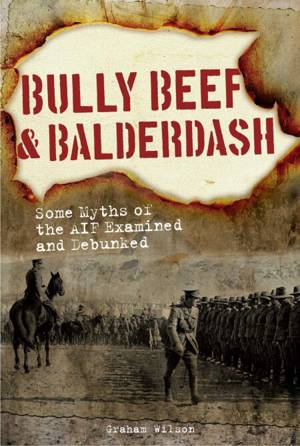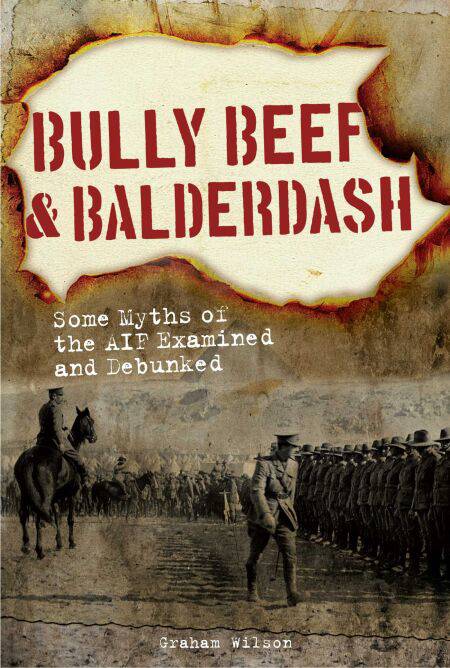
- Retrait gratuit dans votre magasin Club
- 7.000.000 titres dans notre catalogue
- Payer en toute sécurité
- Toujours un magasin près de chez vous
- Retrait gratuit dans votre magasin Club
- 7.000.0000 titres dans notre catalogue
- Payer en toute sécurité
- Toujours un magasin près de chez vous
Bully Beef & Balderdash EBOOK
Some Myths of the AIF Examined and Debunked
Graham Wilson
Ebook | Anglais
6,76 €
+ 6 points
Description
The Australian Imperial Force, first raised in 1914 for overseas war service, became better known by its initials - the "AIF". There was a distinct character to those who enlisted in the earliest months and who were destined to fight on Gallipoli. During the war the AIF took its place among the great armies of the world, on some of history's oldest battlefields. The Australians would attack at the Dardanelles, enter Jerusalem and Damascus, defend Amiens and Ypres, and swagger through the streets of Cairo, Paris, and London, with their distinctive slouch hats and comparative wealth of six shillings per day. However, the legend of the AIF is shrouded in myth and mystery. Was Beersheba the last great cavalry charge in history? Did the AIF storm the red light district of Cairo and burn it to ground while fighting running battles with the military police? Was the AIF the only all-volunteer army of World War I?
Graham Wilson's Bully Beef and Balderdash shines an unforgiving light on these and other well-known myths of the AIF in World War I, arguing that these spectacular legends simply serve to diminish the hard-won reputation of the AIF as a fighting force. Graham Wilson mounts his own campaign to rehabilitate the historical reputation of the force and to demonstrate that misleading and inaccurate embellishment does nothing but hide the true story of Australia's World War I fighting army. Bully Beef and Balderdash deliberately tilts at some well-loved windmills and, for those who cherish the mythical story of the AIF, this will not be comfortable reading. Yet, given the extraordinary truth of the AIF's history, it is certainly compelling reading.
Graham Wilson's Bully Beef and Balderdash shines an unforgiving light on these and other well-known myths of the AIF in World War I, arguing that these spectacular legends simply serve to diminish the hard-won reputation of the AIF as a fighting force. Graham Wilson mounts his own campaign to rehabilitate the historical reputation of the force and to demonstrate that misleading and inaccurate embellishment does nothing but hide the true story of Australia's World War I fighting army. Bully Beef and Balderdash deliberately tilts at some well-loved windmills and, for those who cherish the mythical story of the AIF, this will not be comfortable reading. Yet, given the extraordinary truth of the AIF's history, it is certainly compelling reading.
Spécifications
Parties prenantes
- Auteur(s) :
- Editeur:
Contenu
- Nombre de pages :
- 448
- Langue:
- Anglais
Caractéristiques
- EAN:
- 9781921941610
- Date de parution :
- 14-03-12
- Format:
- Ebook
- Protection digitale:
- Adobe DRM
- Format numérique:
- ePub

Les avis
Nous publions uniquement les avis qui respectent les conditions requises. Consultez nos conditions pour les avis.






